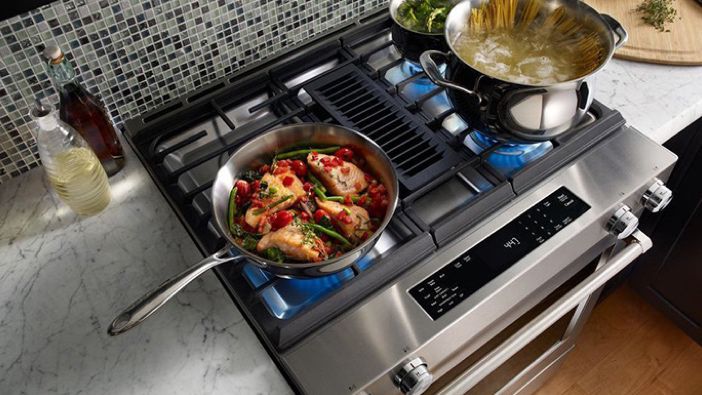
When it comes to the debate of things that run off of gas versus their electric counterparts, most people have a preference, but they may or may not be able to explain why. For some of us its simply a matter of what we have gotten used to, and what we have the most experience with. If you’ve only ever cooked on a gas stove, or only had an electric water heater, the idea of using something else could be unknown and even intimidating. For some, having a bad experience with a gas or electric appliance may have soured them on one type for life. But if you are in the market for a new home or are considering a custom built home, you may now have the opportunity to choose what fuel you would like to power many of the items in your home. Likewise, if it is time for a kitchen remodel, you might be able to convert from one energy source to another. So what should you choose? Read on for some of the comparisons of gas and electric items, and the reasons you might choose one over the other.
What is the Cheapest Option?
If you are looking solely at operating costs, gas is almost always the cheaper option when compared to electricity, because rates tend to be lower than electricity. If you aren’t sure that will be the case where you are looking to purchase your home, go ahead and request rate information from the utility companies servicing your new area. Once you know the rates, you can make an educated guess about your costs, though you’ll still need to consider the amount of each type of fuel that will be needed to power your specific appliances and heating system.
Even when you know how much you can expect to pay for gas and electricity in your area, how much you can save with one energy source versus the other is highly dependent upon the appliance in question and how you use it. Also, sometimes energy savings are not the most important factor in someone’s decision to choose one energy source over the other.
Stovetop Ranges
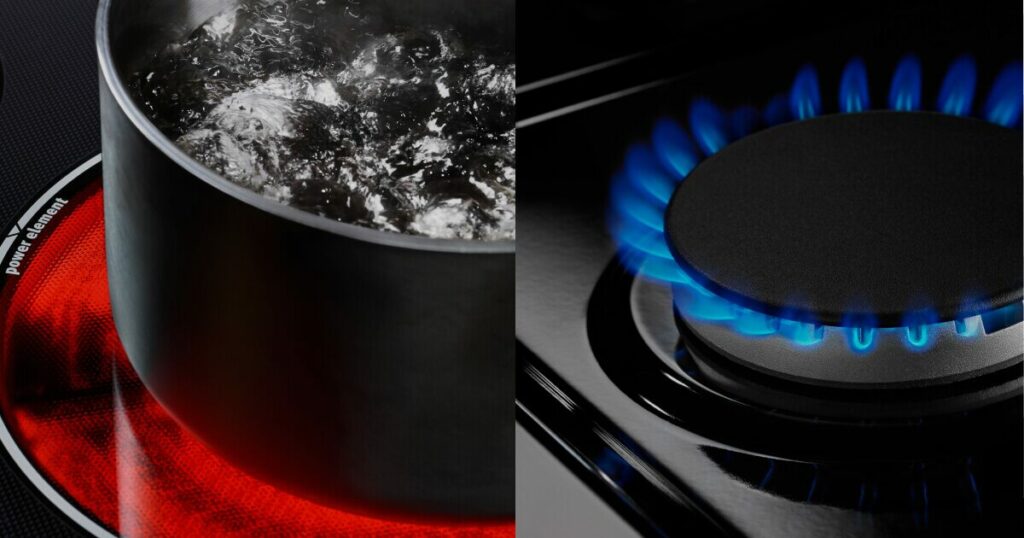
Most experienced chefs and dedicated home cooks prefer a natural gas range for cooking. Gas burners heat up more quickly than electric burners, and the even spread of the flame across the bottom of the pan cooks food more evenly. The knobs of a gas stove allow you to change the size of the flame you are using, which gives you much more control over how your dish will turn out. Gas stove tops are also cheaper to operate, mainly because of their faster warmup and cooldown periods during which less energy is used.
So why does anyone prefer an electric range? Some more novice cooks are not comfortable with the igniting burners of a gas range and feel that an electric cooktop is the safer option. This is especially true where you have less experienced cooks who also have young children. For any home that has a gas range, it is very important that you also have a carbon monoxide detector installed so that you can catch potential gas leaks early, whereas electric ranges due away with this particular concern. Electric ranges can also be easier to clean, especially the newer smooth-top models, which have a flat surface that just requires a simple wipe down. Older models with electric coils don’t really provide this advantage, but in the event of a major boil-over, the pans beneath the coils can be easily replaced.
Clothes Dryers
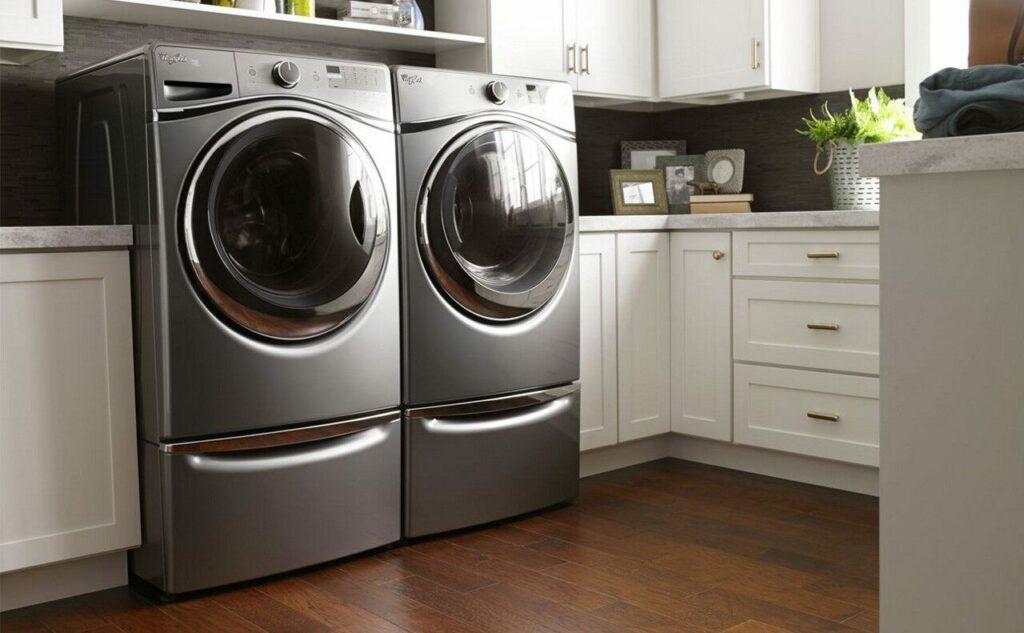
Natural gas dryers usually cost more than electric dryers when purchased, but the difference on average is usually only around $100. Gas dryers on the other hand tend to be much cheaper to operate. They produce a larger quantity of hot, dry air than electric dryers, so they are able to dry your wet clothes much faster and than electric models, and will use much less energy to do it. Unless your home receives much of its energy from solar panels, a gas dryer is typically seen as a much greener choice and is believed to be better for the environment.
A natural gas dryer can actually dry two loads of laundry for what it costs for an electric dryer to dry one load of clothing. This means that it will not take very long for the increased purchase price of the unit to be balanced out. It also means that you will not be waiting as long for one load of laundry to finish when you have another load of wet clothes waiting to be dried.
Fireplaces
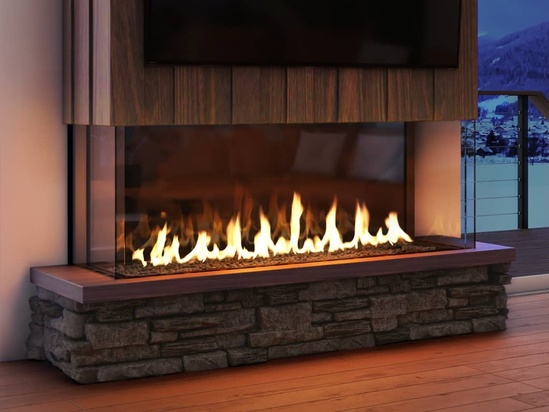
Almost everyone loves the ambiance of a cozy fireplace to curl up in front of, but more and more people are turned off by the idea of of lugging firewood into their homes. There is also a lot of cleanup and maintenance involved with a wood burning fireplace, and for some the smell is a major turnoff. A gas or electric fireplace can fill the need for a crackling fire on a cold night without the negative aspects of a traditional wood fireplace. But which one is the best choice, electric or gas? While both options provide a faux fire, a gas-powered fireplace provides a slightly more authentic experience than an electric model.
Gas fireplaces typically have fake wooden logs, but still use a real gas flame. Electric fireplaces simply heat a coil, so they warm the room like a space heater. You’ll feel the heat, but you won’t get that cozy feeling of an open flame. Also, while most natural gas-powered appliances are cheaper to operate than their electric counterparts, electric fireplaces are the exception. Because electric fireplaces are more efficient than natural gas fireplaces at heating, they cost less to use.
Water Heaters
Most of the time the costs associated with water heaters have more to do with their size and performance than the fuel they use to heat your water. That being said, a gas powered model will usually cost slightly more than a similar quality electric water heater. Many moderately experienced DIY-ers are also able to install an electric water heater themselves, allowing them to save on installation costs. On the other hand, gas water heater should always be professionally installed. When it comes to performance, gas water heaters produce heat more quickly than electric models due to combustion. So with an electric water heater, you may waste more water waiting for your shower, tub or sink to provide the temperature of water you are expecting. Another thing to consider with water heaters – you are much more likely to lose electricity during a storm than you are to lose access to your gas and/or water service. So while you may be a little bored and uncomfortable while you wait for the lights to come back on, you will still have access to a warm shower if your water heater is powered by gas.
Converting an Existing Home
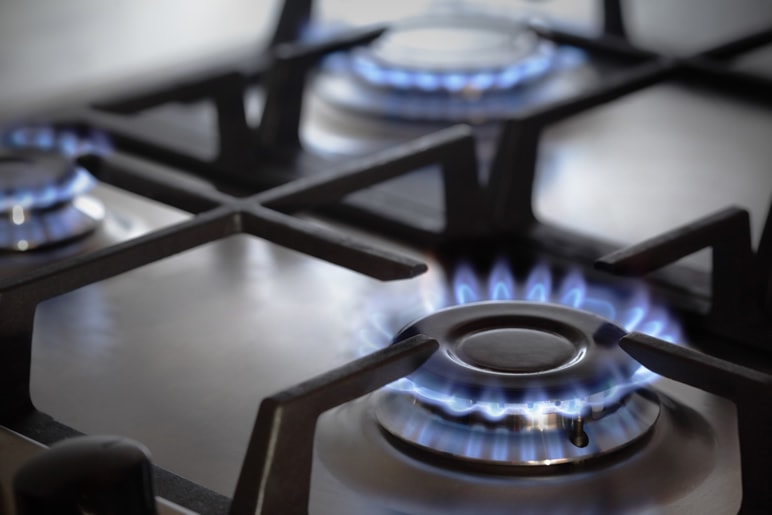
Did you fall in love with a house that is perfect in every way except that gas water heater or electric stove? Converting to your preferred energy source is possible, and in some cases it may be easier and cheaper than you may expect. If you are changing from electricity to gas, what matters most is whether or not you already have a gas line installed. If you already have gas for your water heater, tapping into that line for your stove is a relatively easy process, but one that should only be completed by an experienced professional. If you do not already have a main gas line at your home, having one installed could mean anything from digging up your lawn to cutting multiple holes into your home’s walls. That will be a much more expensive process than simply redirecting from or tapping into an existing line.
The switch from gas to electricity is usually easier, but still involves specific work that must be completed by a professional. Existing gas lines must be capped and new electric circuits and wiring will need to be installed. This form of conversion is usually much cheaper than the electric to gas exchange, but does not lead to as much long term savings as with converting to gas. Utility savings is not the only reason people seek to make a conversion though, and cooking preferences in particular tend to lead people to make the change no matter the cost or potential long term savings.
Other Considerations
Recently there has been more of a push to convert homes to be fully electric, and there are multiple reasons for this. Even a small amount of natural gas in the air can contribute to asthma in children and adults, and minor leaks have been known to sicken and even kill pet birds before the escaping gas is noticed. In addition to the chances of natural gas leaking into your home, gas appliances can emit trace amounts of nitrogen dioxide, carbon monoxide and formaldehyde. So for people who are looking to live a greener life, electric appliances might actually be the better choice. Many cities and municipalities are pushing for restrictions on new natural gas lines, which is leading to more and more new construction trending toward being totally electric. This is in an effort to reduce carbon emissions. These concerns are relatively new and not everyone shares this reservation about natural gas usage.

